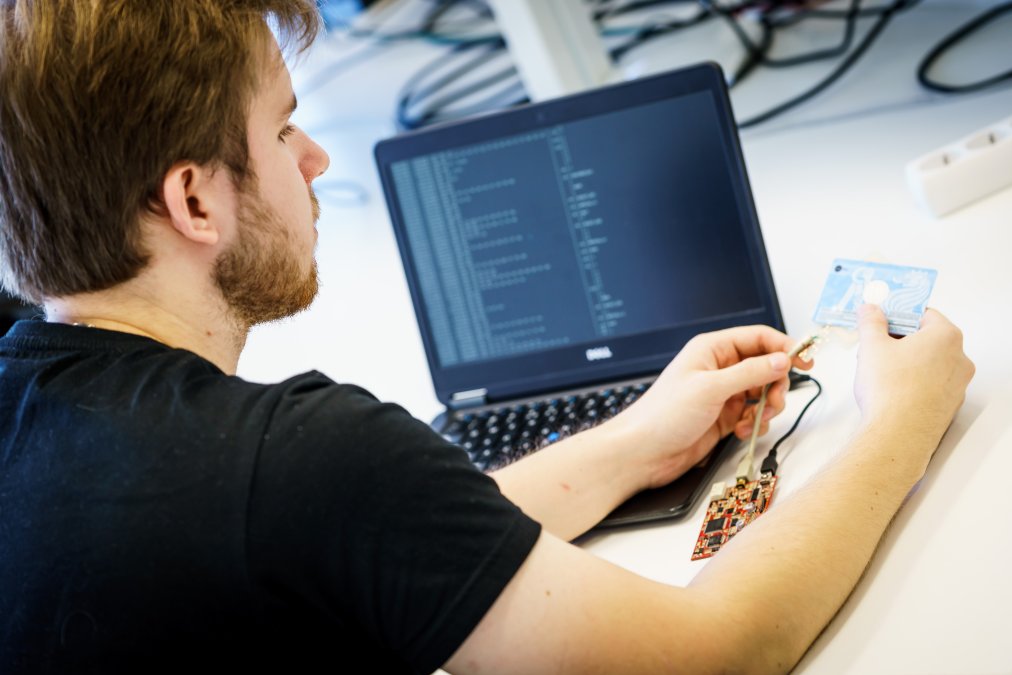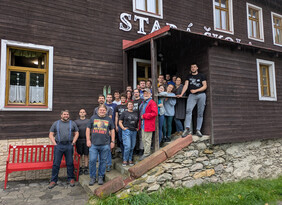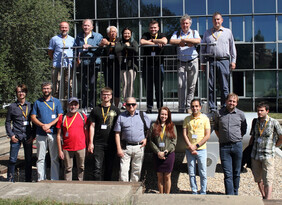
Cyber threat is no longer just a term from science fiction literature or film. Hacker attacks on institutions, companies and individuals are constantly increasing, and attackers who exploit and abuse our personal data are becoming more and more dangerous. In the Czech Republic, there is a noticeable lack of experts who can predict and avert a hacker attack or find and remove vulnerabilities in computer and network systems in cyberspace. FIT CTU educates precisely such experts who will think like a hacker.
The importance of information security is enormous in modern times, which is also why cyber security was one of the priorities of the past Czech Presidency of the Council of the European Union. FIT CTU is also aware of the importance of this sphere, and cyber security is, therefore, one of the key topics that the faculty focuses on. Faculty was the first in the Czech Republic who open a top workplace for information security studies, the Department of Information Security, which guarantees security specializations in bachelor’s and master’s specializations. The branches have a balanced thematic mix of courses in system and network security, malware detection, and hardware and software security.
Students can use their acquired knowledge in practice in the departments’ laboratories. In the Ethical Hacking Lab, they learn ethical hacking techniques and do penetration tests, simulating the behaviour of hackers and looking for potential security weaknesses. In the Forensic Laboratory, students can apply forensic analysis of various storage devices of attacked systems, thus revealing the origin and causes of attacks. For example, the RFID Laboratory tests the chip cards’ security.
“We teach our students to face the cyber threat from hackers, thanks to the laboratories’ modern technologies and the teachers’ IT experience. Students can also detect hidden weaknesses in computer systems at both the software and hardware level, respond to them correctly and propose solutions to eliminate them,” prof. Róbert Lórencz, head of the Department of Information Security, said.
Cybersecurity experts must always stay one step ahead of hackers and be prepared for possible attacks on consumer systems and the Internet of Things (IoT). It means smart homes, pacemakers, payment cards and terminals, access systems, electronic facilities of modern cars, autonomous vehicles or the control of entire train units. With digitization, computer systems appear all around us. To protect the privacy and safety of users, it is necessary to secure them not only with the many different cryptographic algorithms but also with the appropriate architecture of these embedded systems.
Experts and students from the Department of Digital Design deal with security and resistance to attacks in their laboratories. The Embedded Security Lab deals with the protection of embedded and IoT systems because they are prone to physical attacks by a potential hacker in everyday life. To simulate and verify the resistance against such attacks, FIT students have a highly equipped workplace, where they learn not only to break the security of these systems but especially to secure them appropriately.
The Network Traffic Monitoring Lab deals with the detection of security threats in high-speed networks. Network traffic, especially encrypted traffic, can hide suspicious communication from attackers or malicious applications.
“We need to detect security threats, but detection over encrypted traffic is not easy. We are exploring the use of machine learning as a possible means to avoid content decryption and protect user privacy. This is related to research on training data sets and their quality or hardware acceleration for fast networks,” Ing. Tomáš Čejka, Ph.D., the head of the laboratory, said.





